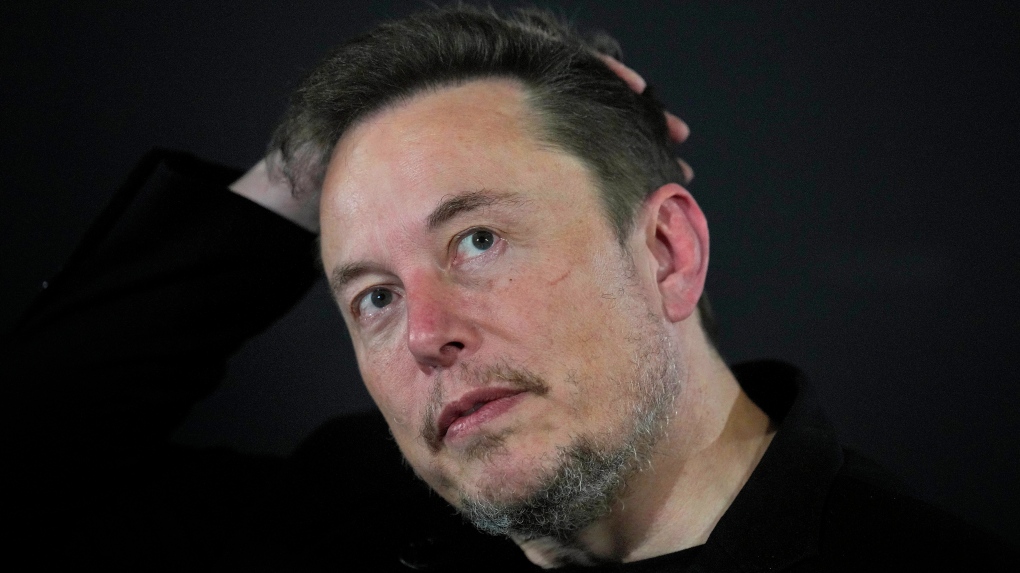
What to know about Elon Musk's 'free speech' feud with a Brazilian judge
CTV
Headline-grabbing billionaire Elon Musk is clashing with a Supreme Court justice in Brazil over free speech, far-right accounts and misinformation on X, the social media platform Musk bought when it was Twitter.
Headline-grabbing billionaire Elon Musk is clashing with a Supreme Court justice in Brazil over free speech, far-right accounts and misinformation on X, the social media platform Musk bought when it was Twitter.
Since his takeover, Musk has upended many of Twitter's policies, gutted its staff and transformed what people see on the site. As its owner and perhaps most influential user, he's also used it to try to sway political discourse around the world. His latest entanglement is inside the nation of 203 million people that has the largest population and economy in South America.
The South Africa-born CEO of Tesla and SpaceX bought Twitter in 2022 and declares himself a “free speech absolutist.” To his critics, it's absolutism with a political slant. He reinstated previously banned accounts such as the conspiracy theorist Alex Jones and former U.S. President Donald Trump, as well as accounts belonging to neo-Nazis and white supremacists. Advertisers who halted spending on X in response to antisemitic and other hateful material were engaging in “blackmail," Musk has alleged.
In the United States, free speech is a constitutional right that’s much more permissive than in many countries, including Brazil, where Supreme Court Justice Alexandre de Moraes this month ordered an investigation into Musk over the dissemination of defamatory fake news and another probe over possible obstruction, incitement and criminal organization.
In Brazil, judges can order any site to remove content. Some decisions are sealed from the public.
Neither Brazilian courts nor X have disclosed the list of accounts that have been ordered to stop publishing, but prominent supporters of former President Jair Bolsonaro and far-right activists no longer appear on the platform.
Some belong to a network known as “digital militias.” They were targeted by a five-year investigation overseen by de Moraes, initially for allegedly spreading defamatory fake news and threats against Supreme Court justices, and then after Bolsonaro's 2022 loss for inciting demonstrations across the country that were pushing to overturn President Luiz Inácio Lula da Silva's election.





















 Run 3 Space | Play Space Running Game
Run 3 Space | Play Space Running Game Traffic Jam 3D | Online Racing Game
Traffic Jam 3D | Online Racing Game Duck Hunt | Play Old Classic Game
Duck Hunt | Play Old Classic Game